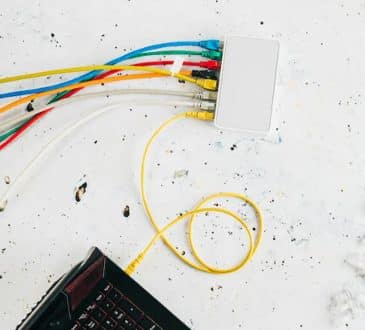Dispelling 7 myths about stress

Stress rates continue to increase. In a recent study (2019) Harvard Business Review reported as much as 50% of senior executives experience a sense of loneliness. As much as 61% acknowledged Loneliness as a factor of hindering their ability to deliver their best.
This article aims to dispel some common misconceptions about stress.
Myth 1: People or situations cause us stress.
Stress is not something people or situations cause, but something happening within us. External situations and people are the ‘triggers’ that make us feel ‘threatened’. When we don’t know how to deal with situations, stress appears.
These external ‘triggers’ repeatedly reveal our traumas lying deep within us.
Extreme levels of stress can result in clinically diagnosed ailments such as Post Traumatic Stress Disorder.
There is a solution to stress and anxiety, and it’s achieved through internal work to clear the emotional damage.
Myth 2: Medication can help you continue to function under stress.
Medication for stress tends only to numb our emotions.
It is common that senior executives who use medication to combat stress do so purely to function in their daily roles. Unfortunately, those who do so are unaware of the severe damage this is causing to their lives. This includes prohibiting the person’s ability to feel joy, love and satisfaction.
They can also harm family life, as people can be apathetic towards spouses and unable to feel satisfaction from their children’s successes.
In the long run, the brain’s stress mechanism is only designed to operate for short periods.
Excess stimulus causes the stress mechanism to over react, also causing chronic stress, anxiety attacks, panic and depression. The pathway to many secondary illnesses is, therefore, short.
Six of these potentially deadly consequences includes heart attacks, strokes, high blood pressure, diabetes, cancer, and suicide resulting from depression.
The American Institute of Stress noted that annually, there are approximately 120,000 deaths from work-related stress and a cost of $190 billion.
Myth 3: Stress is a good thing and can be used for motivation:
We all have a ‘fight or flight’ response. We are designed to naturally seek to escape situations we perceive are harmful to us.
Our reaction to stress can be the result of a learned behaviour. Stress that may have been useful in seeking to achieve previous goals, may actually cause us harm as we grow older.
People’s procrastination is a learned behaviour and is due to low self-esteem caused by childhood trauma. Fear of others’ opinions, insecurity, and lack of self-esteem also causes a delay in dealing with the things that need to be done.
Myth 4: To overcome stress, you need to eat and sleep well and do yoga and meditation:
Food and sleep are basic existential needs. Yet, people who experience stress tend to overlook these.
One of the symptoms of stress is insomnia which in turn then interrupts the sleep pattern. This lack of sleep can lead to further stress.
Another symptom of stress is ’emotional eating’. A stressed person feels an intense emotional need to eat carbohydrates and sugars because they confuse the feelings of guilt and pain with hunger.
Sugars and carbohydrates stimulate addiction areas in the brain, causing dopamine production and creating a sense of calm. But, the relief is short-lived. This causes weight gain, further damaging self-esteem, and subsequently increasing stress.
Yoga and meditation are excellent relaxation aids, but their effect on stress reduction is also short-lived.
A person who is a yoga or meditation teacher is likely to be relaxed.
But a senior manager who feels under time pressure, even if he trains for an hour a day, will find the feeling of calm immediately dissipating as soon as he returns to his regular, stressful routine.
Myth 5: Conventional methods are the easiest way to deal with stress.
When we talk about conventional methods, we mean psychiatry and medication.
Many executives think this is the best and quickest way to deal with stress, as it allows them to continue with their daily routine.
But this way focuses only on relieving symptoms and not finding the problem.
In 2010 the journalist and author Robert Whitaker investigated medical psychiatry and revealed practices contrary to medical ethics.
He asked in his book ‘Anatomy of an Epidemic’:
“If we have treatments that effectively address these disorders, why has mental illness become an ever-greater health problem in the United States?”
The number of people with mental issues has significantly increased since 1987.
Whitaker answers that conventional methods are ineffective and stem from foreign interests to public health.
Myth 6: Stress is a symptom of the technological world.
We are all subject to levels of incoming information that we have never seen before. Too much information however can cause anxiety, panic attacks, depression, and burnout. So, we need to remember the crucial facts:
Stress is a response to an internal mechanism designed to maintain survival. The danger comes when we become overloaded with information that we cannot process.
Increasingly, conventional professionals have been over prescribing medication to anyone who demands it, creating legitimacy for chronic stress. Therefore the number of people defined as ill has increased exponentially. Similarly, it would be inappropriate to treat a cold in the same way as pneumonia.
People and external situations don’t cause stress; it occurs within us. Therefore, it is only through tackling internal emotional problems manifesting external triggers that stress can be removed once and for all.
Myth 7: I Don’t need help, I can overcome my stress.
Great. However, it is always good to be able to identify that coping with stress
Isn’t necessarily resolving stress. Although resilience is a crucial attribute for today’s executives, resilience doesn’t resolve the underlying triggers which create stress. Left untreated, stress negatively affects the three core areas of our lives: health, relationships and careers. These areas are connected, and damage to one immediately affects the others.
We know that stress is a part of life and that we need to live with it.
We also know that we have a choice. We can deal with the symptoms or be proactive to solve it once and for all.
When we deal with the cause of the underlying stress related triggers, not only do we strengthen our self-confidence and self-esteem, but we also change our perspective, and can begin to control it to our advantage.
The ultimate question are, how are you and how do you deal with stress?
Commentary by Jacob Shekrel.








